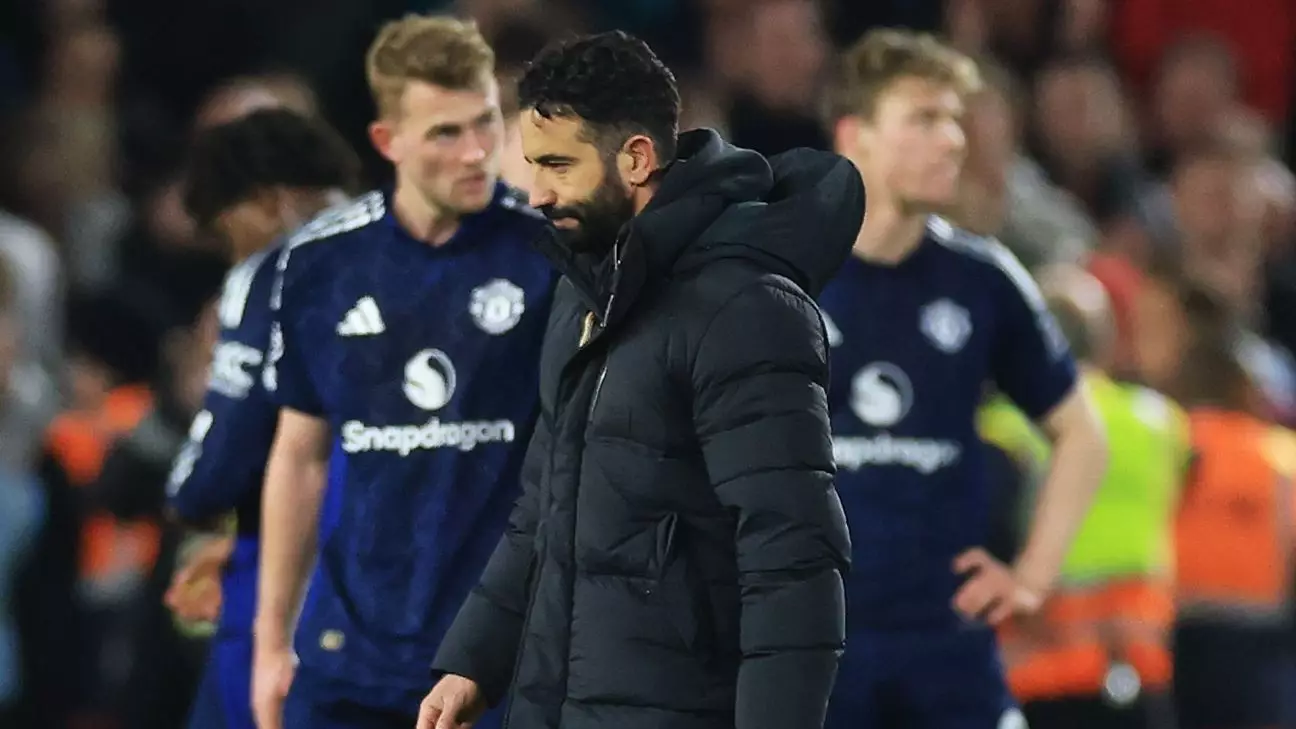In the world of football management, few roles can match the intense scrutiny faced by the Manchester United manager. Following the club’s disheartening defeat to Nottingham Forest, recently appointed manager Ruben Amorim openly acknowledged the harsh reality of his position: time is not a luxury afforded to him. With the team’s slumping performance leading to their 13th loss of the Premier League season, the stakes have never been higher. Amorim’s candid statement, “In Manchester United, you don’t have the time,” encapsulates a glaring truth within the club’s philosophy—a sentiment that may resonate painfully with fans and players alike.
The immediate aftermath of such a defeat is often a whirlwind of emotions: frustration, disappointment, and an overwhelming sense of urgency. The early goal from former United player Anthony Elanga served as both a catalyst for Forest’s confidence and a harsh reminder of United’s defensive frailties. This situation creates a bleak atmosphere; when a team falls behind early, they inevitably play into the hands of their opponent, who can then park the bus and frustrate attacking attempts. Amorim’s struggle to instill a resilience and tactical discipline within the squad only heightens the tension around Old Trafford.
Mounting Challenges in the Final Third
Despite the team’s attempts to assert themselves post-deficit, they continue to stumble in crucial moments, particularly within the final third. Under Amorim’s direction, the lack of effective finishing and creativity has become a recurring theme. Alejandro Garnacho, a promising young talent, found himself responsible for six of the team’s 24 shots—yet failed to truly test Forest’s goalkeeper, Matz Sels. This repeated failure to capitalize on opportunities not only hampers morale but also underlines an urgent need for tactical innovation.
Amorim’s defense of Garnacho is notable, as it showcases his belief in the player’s potential. Yet, one has to wonder whether believing in the merit of a player’s overall effort is enough when results are desperately needed. While hustle and determination are commendable traits, they must be complemented by a sharpness that transforms attempts into goals. The manager’s insistence on Garnacho’s effort being adequate underlines a deeper issue: an inability to find the right balance between individual brilliance and cohesive team dynamics.
The Road Ahead
As Manchester United remains ensnared in a lackluster mid-table position, the urgency for change becomes increasingly critical. Fans and analysts alike will be watching closely to see how Amorim adapts his strategies moving forward. Will he continue to rely on a young squad trying to establish itself in a high-pressure environment, or will he pivot toward incorporating more experienced players who can provide stability and composure?
Ultimately, the quest for success at Manchester United goes beyond merely stringing together wins; it’s about constructing a resilient mindset within the team, one that battles adversity when facing opponents. Changing the culture of a storied club like United is no simple task, but it’s one that Amorim must tackle head-on, with the clock ticking ever louder on his tenure. The passionate fanbase deserves more than just earnest efforts; they deserve a team capable of mounting a genuine challenge, one that not only wins matches but also embodies the prestige and tradition of Manchester United.

